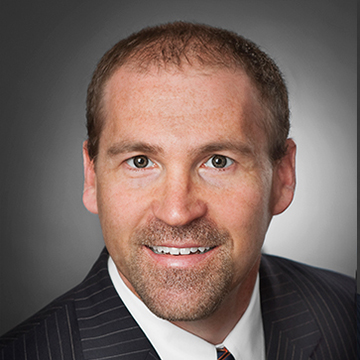
By Geoff Gaggs, MS, CFP®
Partner and Client Advisor
Are you ready to retire? Maybe you’ve never asked yourself that question, or are afraid to ask yourself! The planning is about much more than which hammock you are going to spend your afternoons in (although we do think that is a very important consideration).
These 10 steps will help you wrap your mind around the planning necessary to enter and navigate retirement successfully:
- Assess your financial situation. Take an inventory of your current assets, liabilities, income and expenses. Then estimate what your liabilities, income and expenses will look like in retirement. Often, lifestyle expenses stay the same (although some expenses may shift, such as spending less money on the kids as they grow out of the nest and more on traveling and healthcare). Perhaps the home mortgage will be paid off and direct income from pensions, Social Security and rental income will kick in. Additionally, do you expect any lump sums in the future, such as from inheritance or a business sale? These are some of the items you will want to consider.
- List your financial goals and objectives. List all the things you want to accomplish – your financial bucket list! Then prioritize them with “1” being top priority, “2” the second highest priority, and so on. Examples of financial goals include: developing a cash reserve, tracking your spending, paying off debts, maximizing retirement savings, projecting how much to save for college, identifying a target retirement age, distribution planning (planning what assets to pull from in retirement), saving more money on taxes, estate planning (avoiding probate, naming a guardian for your kids, etc.), having the right amount of life insurance, long-term care planning, health insurance planning, maximizing charitable giving, and having proper coverage for home / autos / personal liability.
- List your top-of-mind topics. Outline your worries, concerns, questions and/or anything keeping you up at night. Why is retirement planning on your mind now? Often it is event-driven – that is, something has recently happened or is expected to happen, and this has created a sense of urgency for you.
- Formulate a plan. This can be done on your own or with the guidance of a financial advisor. Typically, this would involve a retirement projection software using “Monte Carlo” simulations to run different scenarios so you can see the impact of different assumptions on your plan. For example, you can see the impact on the longevity of your assets if you retire earlier, earn more on your investments, spend less, or save more. Also, you’ll need to develop an investment strategy that complements your projections. This gets into the discussion of how much risk you can stomach, the return needed for your plan to work and how to design the investments to provide optimal consistency and the highest return possible for the amount of risk you’re taking.
- Implement your plan. Again, this can be done on your own or with the help of a financial advisor. Don’t go to the trouble of creating a plan and not putting it into motion! You can tackle the highest priority items first and work your way through the list over time. It is important to set a timeline to complete the items and have accountability to getting them done.
- Monitor your plan. Regular check-ins are important because your goals and priorities can change over time. The investments will need to be fine-tuned. Tax and estate laws change over time and you want your plan to benefit from the latest developments.
- Don’t get emotional about it. The reality is that retiring is easier said than done. The psychology behind money and financial decisions is a large aspect of my conversations with clients. The natural tendency is to want to sell stocks when the market has dipped or when there is a “feeling” of a dip. Losing sight of your long-term plan due to these feelings can derail your plan. Investors who are disciplined and stay the course are much more likely to achieve their financial goals and to not miss out on opportunities in the market.
- Don’t sweat the small stuff. The focus should be on larger items that move the needle. Identify the big items that significantly impact your plan and focus your energy on these items. Examples include not getting bogged down with how much you have in your checking vs. savings account at the bank. Focus your time on things that really impact your plan – like staying true to your annual savings goal and keeping your spending in check.
- Balance your life. If you work all the time and don’t make time for your family and friends, then you lose out on events that you’ll never have an opportunity to experience again. Your parents will not live forever. Your kids will not be kids forever, and before you know it, they will want their independence. Your friends will drift away if you don’t keep them in your life. Don’t have regrets. Be creative with your time. If there is a family or friend event, make it a priority and find the time to get your other responsibilities done too. You will be happier and as a result your plan (and life) will be more successful.
- Your plan, your life. Chase your dreams and not the dreams you think others want you to achieve. If you do what makes you happy, you will have more energy, satisfaction and positivity. Don’t just go through the motions of what you think you should be doing. Do what you want to do. You will be a happier person and this will show in your relationships with everyone around you.
950952 5/17


